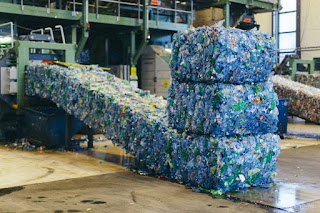Thursday, 9 January 2020
Norway Recycles 97% Of Its Plastic Bottles: A Blueprint For The Rest Of The World?
Norway Recycles 97% Of Its Plastic Bottles: A Blueprint For The Rest Of The World?
Plastic pollution is one of the biggest problems in modern society. The world faces difficulties in properly dealing with discarded plastic due to its rapidly increasing production.
The main issue about it is that single-use plastics currently account for 40 percent of the plastic produced annually, and many of these products may persist in the environment for centuries.
Plastic waste kills over 100,000 sea mammals and a million birds annually, and the UN Environment Programme maintains that every year, 480bn new plastic bottles are produced.
Every minute, the equivalent of a lorry load ends up into the sea.
Norway has one of the most efficient ways to recycle plastic bottles, through an organization called Infinitum.
The scheme has allowed the country to recycle even 97 percent of all plastic drink bottles, and 92 percent of them are reused to make more bottles. Some bottles have been recycled over 50 times already.
The name of the organization stands is “ inspired by the infinite number of times you can recycle a bottle or can in our deposit scheme. “
According to Infinitum’s website:
“ Our sole purpose is not an economic profit, but to always increase the number of collected beverage containers our eco-friendly, cost-effective deposit scheme can handle. We are strongly motivated to contribute to a better environment, thus we have invested in new, highly effective and modern recycling facilities. This ensures a clean environment and a better future.”
Their system is strictly controlled: they check the cap, glue, and label materials well, and then a small amount of virgin material is added.
According to Sten Nerland, director of logistics and operations:
“We are the world’s most efficient system. As an environmental company, you might think we should try to avoid plastic, but if you treat it efficiently and recycle it, plastic is one of the best products to use: light, malleable and it’s cheap.”
The main warehouse near Oslo processes 1,500 containers of materials daily.
Plastic packages and bottles are processed at the warehouse near Oslo
Here is how the Norwegian system functions: the more companies recycle, the less tax they have to pay, and if they reach a collective nationwide target of over 95 percent, which has been the case since 2011, then they don’t pay any tax at all.
Also, customers pay a deposit for each bottle they buy, so they see bottles are given on loan and need to be returned.
Plus, there are hundreds of thousands of ‘reverse vending machines’ they can use to do so, which give them the money back after scanning the barcode of the deposited bottle. They have another option as well and can return it to various small shops and gas stations for cash or store credit.
Kjell Olav Maldum, the CEO of Infinitum, explains:
“We want to get to the point where people realize they are buying the product but just borrowing the packaging.”
The extremely high rate of recycling in Norway has inspired people from many countries, and according to Tor Guttulsrud, the facility’s director of economics and finance, they have been visited by representatives from many countries interested to adopt their recycling system.
Some bottles have been recycled over 50 times already
Yet, there is one other thing that helps to optimize the process: under the Norwegian regulations, producers are obliged to use only approved labels, bottle tops, and even glue.
They first collect empty bottles in compressed cubes. Cans are melted into sheets, while bottles are shredded, cleaned and dried into plastic flakes, ready to be used again
However, some fear that the focus on plastic is not that helpful, as producing plastic relies on burning vast amounts of fossil fuels.
Infinitum’s Guttulsrud says:
“Norway will still be challenged by the effects of oil consumption, as the rest of the world will be. But we’re not trying to reduce the use of plastic – we’re trying to reduce the creation of new, virgin plastic. Each year we get closer.”
“We’re trying to reduce the creation of new, virgin plastic. Each year we get closer”
He adds that the production of virgin plastic will decrease by 90% if everyone returned all used bottles.
Even though the global economy depends on plastic, this Scandinavian country shows the world how to use it in a most efficient way.
Subscribe to:
Post Comments (Atom)








No comments:
Post a Comment